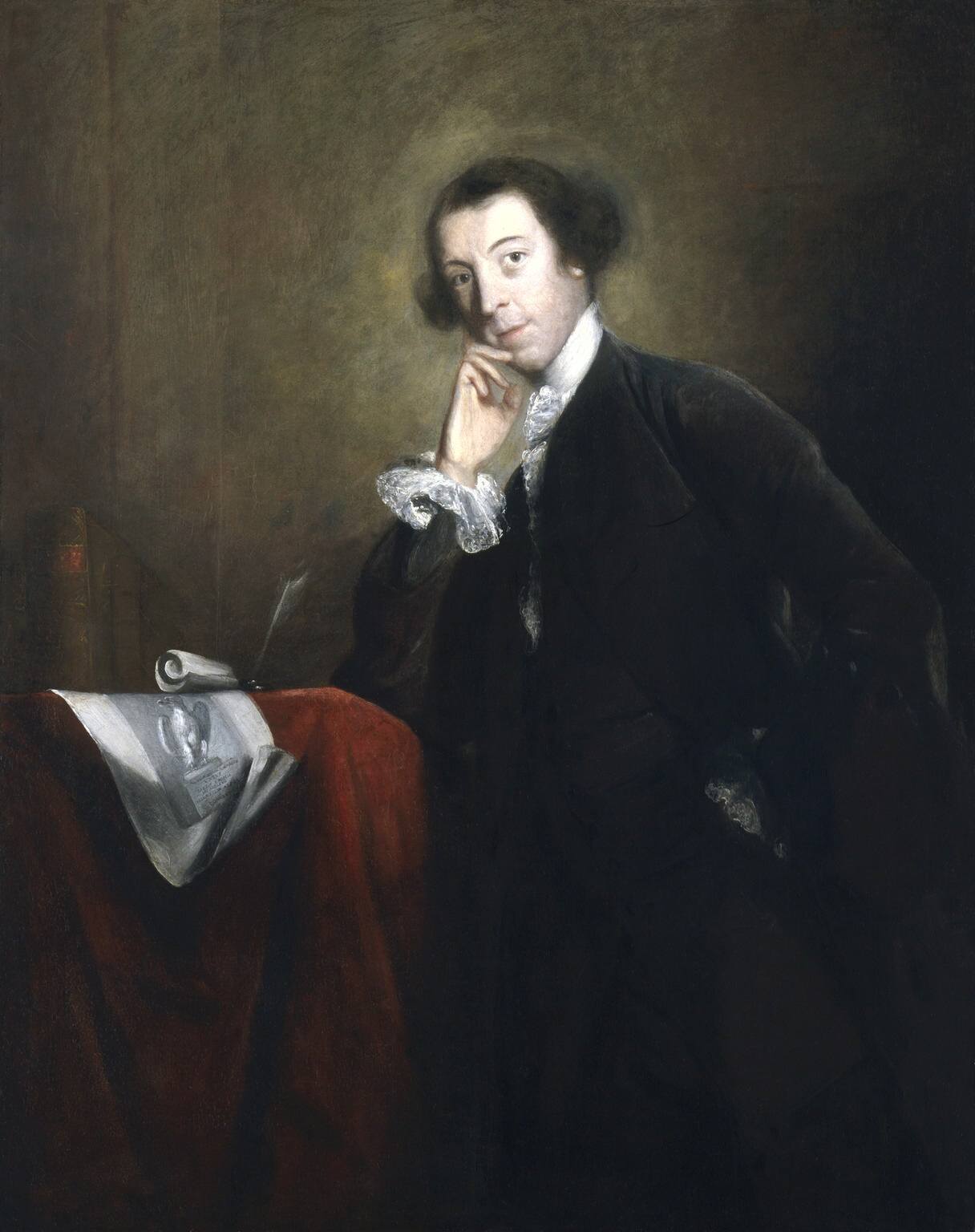Horace Walpole, Earl of Orford: Zitate auf Englisch
As quoted in The Christian Leader, Vol. 37, Issue 7 (17 February 1934)
“When I first came abroad, every thing struck me”
Letter to Richard West, from Rome, 16 April 1740 https://babel.hathitrust.org/cgi/pt?id=coo1.ark:/13960/t5p84vt55;view=1up;seq=194, p. 42, The Letters of Horace Walpole, ed. P. Cunningham, vol. 1
Kontext: ... When I first came abroad, every thing struck me, and I wrote its history; but now I am grown so used to be surprised, that I don't perceive any flutter in myself when I meet with any novelties; curiosity and astonishment wear off, and the next thing is, to fancy that other people know as much of places as one's self; or, at least, one does not remember that they do not. It appears to me as odd to write to you of St. Peter's, as it would do to you to write of Westminster-abbey. Besides, as one looks at churches, &c. with a book of travels in one's hand, and sees every thing particularised there, it would appear transcribing, to write upon the same subjects.
“Life is a comedy to those who think and a tragedy for those who feel.”
Letter to Anne, Countess of Ossory, (16 August 1776)
A favourite saying of Walpole's, it is repeated in other of his letters, and might be derived from a similar statement attributed to Jean de La Bruyère, though unsourced: "Life is a tragedy for those who feel, and a comedy for those who think". An earlier form occurs in another published letter:
I have often said, and oftener think, that this world is a comedy to those that think, a tragedy to those that feel — a solution of why Democritus laughed and Heraclitus wept.
Letter to Sir Horace Mann (31 December 1769)
Variante: The world is a comedy to those that think; a tragedy to those that feel.
Letter 123 To Robert Jephson (13 July 1777)
Memoirs from the Declaration of the War with Spain (1746)
Notes of 1758, published in Memoires of the Last Ten Years of the Reign of George the Second (1822), p. 226; also published as "Memoirs of the Year 1758" in Memoirs of King George II, Vol. III (1985), p. 10
Letter to Thomas Walpole (19 February 1785)
Letter to Sir Horace Mann (27 May 1776)
“It was easier to conquer it [the East] than to know what to do with it.”
Letter to Sir Horace Mann (27 March 1772)
“It is the story of a mountebank and his zany.”
Statement about Samuel Johnson and James Boswell, as described in Boswell's Journal of a Tour to the Hebrides with Samuel Johnson, LL.D., in a letter to Hon. Henry Conway (6 October 1785)
“Posterity always degenerates till it becomes our ancestors.”
As quoted in "The Works of Horace Walpole, Earl of Orford" in The Monthly Review, or, Literary Journal, Vol. 27 (1798) edited by Ralph Griffiths, p. 187
“Have done with this rhapsody of impertinence.”
Section 2
The Castle of Otranto (1764)
"The sending of boxes to William Pitt in 1757" in Memoirs of the Reign of King George II (London, 1846–47), Vol. II, p. 202
“A careless song, with a little nonsense in it now and then, does not misbecome a monarch.”
Letter to Sir Horace Mann (1774); this is derived from an proverb of unknown authorship: "A little nonsense now and then / Is relished by the wisest men".
Letter to Sir Horace Mann (24 November 1774)
Letter to Sir Horace Mann, 25 Sept. 1742 https://babel.hathitrust.org/cgi/pt?id=coo1.ark:/13960/t5p84vt55;view=1up;seq=362, pp. 202–203, The Letters of Horace Walpole, ed. P. Cunningham, vol. 1
“Thy purpose is as odious as thy resentment is contemptible.”
Section 3
The Castle of Otranto (1764)
“The whole nation hitherto has been void of wit and humour, and even incapable of relishing it.”
On Scotland, in a etter to Sir Horace Mann (1778); comparable to "It requires a surgical operation to get a joke well into a Scotch understanding", by Sydney Smith, Lady Holland's Memoir, vol. i. p. 15.
Letter to George Montagu (21 October 1759)
On the death of his friend John Chute (1776)
As quoted in The National Trust Magazine, Spring 2011, p. 09
“The way to ensure summer in England is to have it framed and glazed in a comfortable room.”
Letter to Willam Cole (28 May 1774)
As quoted in "The Works of Horace Walpole, Earl of Orford" in The Monthly Review, or, Literary Journal, Vol. 27 (1798) edited by Ralph Griffiths, p. 187
